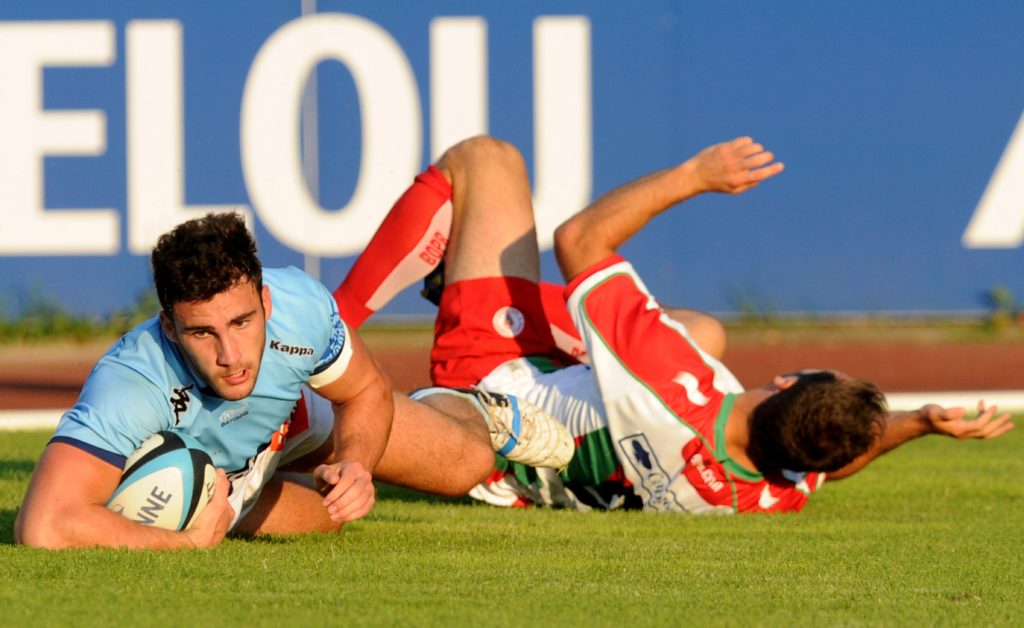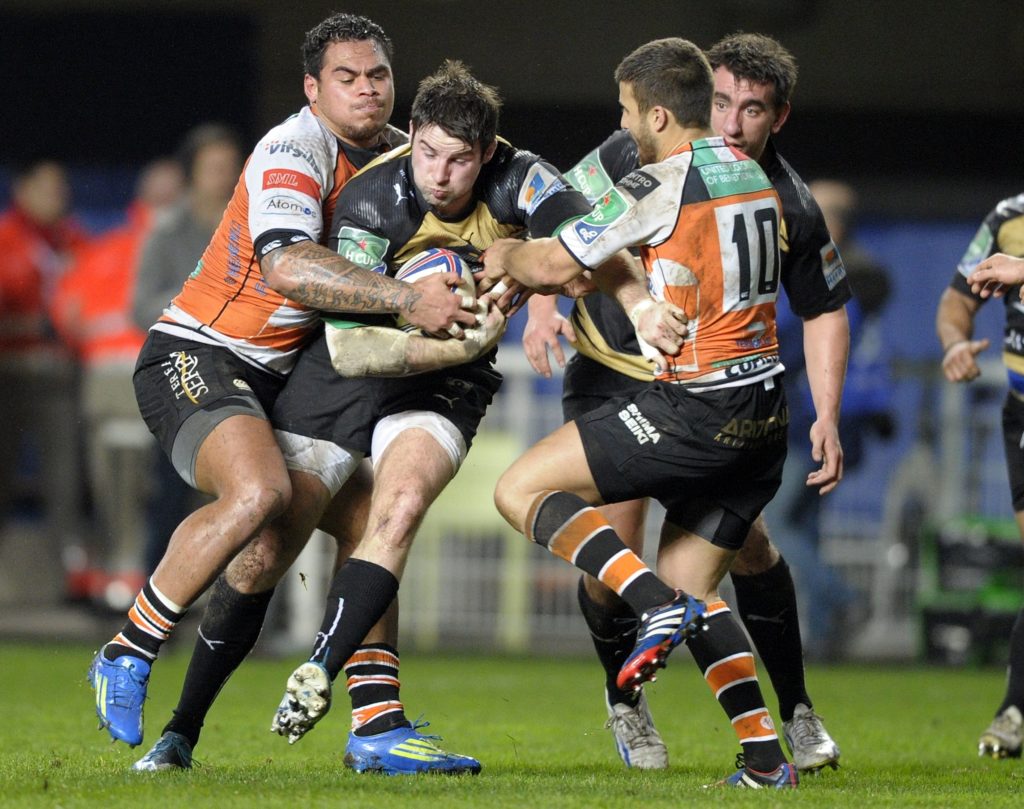At the end of last season, my phone was ringing off the hook with deeply distressed rugby players. Around sixty mates of mine, foreigners in France whose contract options had evaporated, were frantically seeking a deal.
“Nothing is happening.”
“Could you put me in touch with coaches?”
“Are Scottish Rugby hiring?”
“Do you know what’s happening in America?”
This had never happened before. These were international players, guys with serious pedigree, yet there was absolutely nothing for them in France. A few wound up going to England. Some went to America. Quite a lot ended up dropping down to the ProD2 and even the Nationale, the third tier of French rugby. Many went from earning 25-40,000 Euros a month to 50,000 a year. And about half are still without a contract.
Why? Well, even wealthy Top 14 presidents are not immune to the economic realities of Covid-19, but there’s more to it than the raging pandemic. You’ve probably heard of the snazzy acronym ‘JIFF’ before. It stands for Joueurs Issus des Filières de Formation, but you can think of it as the RFU’s England Qualified Player rule on steroids. To be classed as JIFF, a player must have spent at least three seasons in a French club’s academy before the age of 21, or been licensed to play in France for five seasons before the age of 23.
It is ridiculous that a guy like Charles Ollivon was only promoted in the midst of an injury crisis, but such huge emphasis was placed on foreign players.
Johnnie Beattie
These past few years, the governing bodies have ramped up the JIFF quotas in the Top 14. This season, clubs must have 19 JIFF players in their squads of 35, and select at least 14 on match-days.
It is a dramatic change with huge implications. When I joined Montpellier in 2012, I was starting in the back-row with Mamuka Gorgodze and Fulgence Ouedraogo, but there was another kid in the academy called Kelian Galletier who was just as good as me if not potentially better. At Castres, I played ahead of Mathieu Babillot, who is now club captain, and Anthony Jelonch, described this season as the Juan Smith of French rugby.
Bayonne also tried to sign me back then; they said they had nothing in their academy and needed a back-row. I didn’t join them until later in my career, but in the first week of the season, they were hit with injuries, and up from their youth ranks stepped Charles Ollivon. It’s ridiculous that a guy like that was only promoted in the midst of an injury crisis, but such huge emphasis was placed on foreign players that young French guys didn’t get their shots.

The reliance on overseas players also had a detrimental effect on the quality of coaching. If a coach signed a top-line tight-head prop, he didn’t need to teach him how to scrum. Bag a dominant South African lock who called the line-outs and that ticked another box. Chuck in a fly-half who could direct the game, and the team strategy was sorted. French coaches were left behind in their technical detail. And with the constant fear of relegation, they tended to plump for a steady, experienced addition from Super Rugby rather than trust what was blossoming on their doorstep.
Part of this lust for foreign talent stems from the broadcasters. Vast sums of money are ploughed into the Top 14 from Canal Plus and France Television and to be sure of the biggest TV deals, you want the biggest names on show. Galacticos sell. But a player coming from Australia doesn’t understand the geographical difference between Bayonne and Montpellier; they are just coming for paycheques.
Clubs can spend their share of the TV money as they wish. The French Federation (FFR) has virtually no say in that. The clubs throw the dosh around on big-name stars, rather than investing in infrastructure, healthcare, education for kids and for coaches.
Bayonne had a lot of issues with young kids leaving their centre de formation because their facilities were terrible
Johnnie Beattie
As a result, some of the Top 14 training facilities are startlingly modest. Some clubs are so well-backed – take a look around Clermont or Racing 92 and the set-ups they have are absolutely world-class – but it might surprise you to learn that many others are far more basic. Montpellier and Castres are two that spring to mind.
That is starting to change, thanks to the JIFF rules. Bayonne, for instance, had a lot of issues with young kids leaving their centre de formation because their facilities were terrible, coaches weren’t giving academy boys a chance, and there was no promotion from within.
Ollivon and Anthony Etrillard moved to Toulon, where both have flourished. Arthur Iturria went to Clermont, as did talented 20-year-old winger Cheick Tiberghien-Fall. The difference for these guys was stark. So, Bayonne and Brive have invested massively to completely redo their training facilities, because they understand that kids coming through from the area will want a certain level of comfort and knowledge that they are in the right place to progress.

French clubs are also becoming increasingly crafty in their attempts to skirt the JIFF system and broaden their player bases. Clermont have actually built academies on Fiji or formed partnerships with leading Fijian provinces, and that’s where they got guys like Peceli Yato and Apisai Naqalevu. Those players are classed as coming from a French centre de formation and thus, they count as JIFF.
Other clubs are now recruiting 17 and 18-year-old high school kids in South Africa before they even reach professional rugby. These boys are promised big things, better contracts than they could earn in rand, and a safer life in France – in time, they too become JIFF.
France have long been posted missing , perennial underachievers for 10 years
Johnnie Beattie
On the whole, though, the changes are fantastic for young French players. There is a huge focus on home-grown talent, there are more opportunities for them to play, and there is an abundance of untapped riches in the ProD2 – players who are now more likely to get a crack with the big boys.
The national team is flying, thanks to the brilliant coaching ticket led by Fabien Galthie, but what is needed next is the raising of standards across the Top 14. Get rid of all the average, journeymen foreigners clogging up places and stifling the progression of French youth. Tightening the JIFF rules is, 100%, what’s required to push French rugby on to gain a consistent seat at the table. They’ve long been posted missing, perennial underachievers for 10 years.
To come to France as a foreigner now, you need to be world-class – a Finn Russell, Kurtley Beale or Santi Cordero, for example – but that’s no bad thing. You only want to attract the cream. Look at Japan, where teams can have five overseas players in a squad and two on the pitch at any one time, and how far Japanese rugby has progressed in five years – it’s frightening.
For my friends without contracts, it is a cruel market, but I think it’s a real market. As well as encouraging French youth, it also means that young All Blacks, Springboks and Wallabies will stay put and strengthen their own domestic competitions.
For an age, the JIFF foreign market was the biggest by a mile. Addressing their rules gives a monumental boost to French rugby and a better balance to the world game.
If you’ve enjoyed this article, please share it with friends or on social media. We rely solely on new subscribers to fund high-quality journalism and appreciate you sharing this so we can continue to grow, produce more quality content and support our writers.


Comments
Join free and tell us what you really think!
Sign up for free